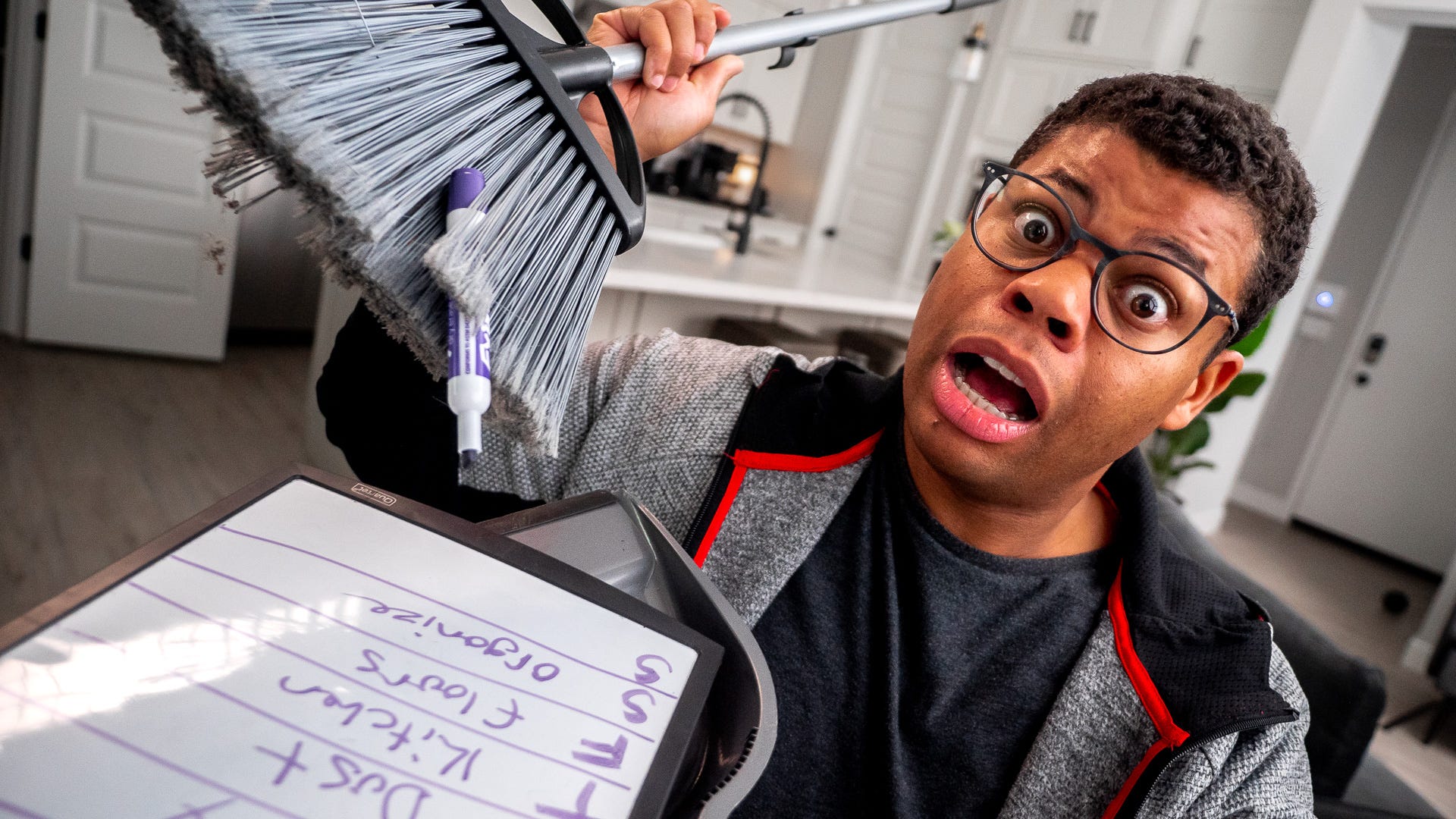'Genius' laundry hack or 'child labor?' Why one video sparked a fierce debate.

A cute Instagram video featuring a toddler folding clothes turned into an unexpected, heated debate.
The short reel shows users how to cut up and tape together cardboard pieces to create a little homemade tool that helps toddlers learn how to fold shirts.
"GENIUS!" one user commented on the video, which has been viewed more than 63 million times. Many others also joked about how they plan to use the helpful hack for their partners, adult children and teenagers.
While some people were charmed by the video, others were more critical. Several users argued the girl shown using the cardboard folding tool is too young to start doing chores, with one commenting: "CHILD LABOR BACK IN?!"
“Seriously? This kid has their entire life to be folding laundry. Give them some toys, get down on the floor and play with them instead,” another said.
But child development experts see no red flags in the video. In fact, they say incorporating everyday chores into toddler play can be fun and also strengthen their gross motor skills, teach them about responsibility and build strong bonds with caregivers. The family behind the viral video could not immediately be reached for comment.
“There can be value to teaching children early on that all family members share a responsibility for maintaining the house,” said Jill Trumbell, assistant professor of human development and family studies at the University of New Hampshire, and a fellow toddler parent. “It gives them a sense of ownership, that it’s not just adults doing everything for us. We’re all members of this family.”
Parents should ensure the chores are appropriate for their child’s age and abilities, said Julie Braungart-Rieker, department head and professor of human development and family studies at Colorado State University.
More health & wellness news: Sign up for Paste BN's Keeping it Together newsletter.
Their language and physical strength must be developed to the point where they can learn how to perform the task and understand the why behind it, she said. For toddlers, the chores might be limited to folding laundry, putting away toys in a play area or just pushing the buttons on a washing machine.
“It’s up to the parents to think of creative tasks that kids could get involved with,” Braungart-Rieker said. “You make it fun for them and you don’t have high expectations.”
Parents and caregivers also shouldn’t force toddlers to perform chores if they’re not in the mood, Trumbell said. It’s important to read their child’s cues – maybe they’re too tired or engrossed in another task.
She said forcing them to learn about chores is counterproductive. The child likely won’t grasp the task and it can result in a negative bonding experience.
“We need to find a good balance between helping children develop self-help skills and having some responsibility in the family but also recognizing that there might be times where they might not want to do things,” Trumbell said.
Braungart-Rieker said the laundry hack video is a great example of how it can be done.
“The girl was smiling and having a good time, so that seems to be a good moment for her,” Braungart-Rieker said. “If they’re having a good time and they’re enjoying doing the task or it’s something they’re learning and growing from – why not encourage them to do that?”
Adrianna Rodriguez can be reached at adrodriguez@usatoday.com.